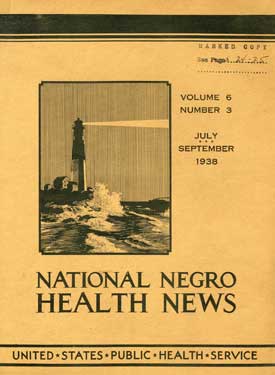It was a great pleasure to conduct research at the Rubenstein Rare Book & Manuscript Library at Duke. As a recipient of the John Hope Franklin Research Center for African and African American History and Culture travel grant, I looked forward to exploring the Library’s holdings that would advance my understanding of black women’s history.

My dissertation project, “Mind, Soul, Body, and Race: Black Women’s Physical Culture, 1900-1939,” investigates the structural barriers to health and fitness for black women and the ways in which they circumvented those barriers and engaged in the physical culture movement. I examine how black women used purposeful exercise to create a new, fit vision of black womanhood that had implications for public health, recreation, and ideas of beauty, citizenship, and racial uplift. As a national project, I want to capture how Southern women, who had even less resources and access to physical culture, participated in the movement.
A significant portion of my dissertation discusses the state of black health and the Library proved to be a valuable repository for exploring the public health aspects of black southern history. The archivists were informed and genuinely interested in assisting researchers and with their help; I consulted about a half a dozen collections in all including the African American Photo Collection, the Alliance for Guidance of Rural Youth records, and the North Carolina Mutual Life Insurance Company archives.
One of the most useful collections was the Alliance for Guidance of Rural Youth. Although the Alliance was primarily a vocational guidance service organization, it sought to address several issues affecting poor, rural young people in the first half of the twentieth century including health issues. I found several documents from the collection related to health campaigns and the barriers to health for black people in the South. For example, a note in the 1934 National Conference on Negro Education proceedings indicated that “environmental rather than racial factors” compromised black health including low income, insufficient housing, and limited access to hospitals, preventive care, and recreational facilities. As it relates to black women’s health, the collection describes some of the difficulties black women had in accessing health information and clinics for their obstetric needs. The collection also contains sources on black unemployment, the black nursing profession, diet and malnutrition, and leisure during the New Deal era.
Additional records at the Library on black health in the twentieth century include William J. Covington’s physician account books and the thesis, Black Health in Segregated Durham.
Post contributed by Ava Purkiss, PhD candidate, University of Texas at Austin and 2012-2013 Franklin Travel Grant recipient.



Just wanted to add this to your article. The Alliance for the Guidance of Rural Youth was a vocational support program group initially developed under the command of Orie Latham Hatcher just as the Virginia Bureau of Vocations for Women (1914-1921), and later on identified as the Southern Woman’s Educational Alliance (1921-1937). Disolved in 1963.
I look forward to hearing more about your research.